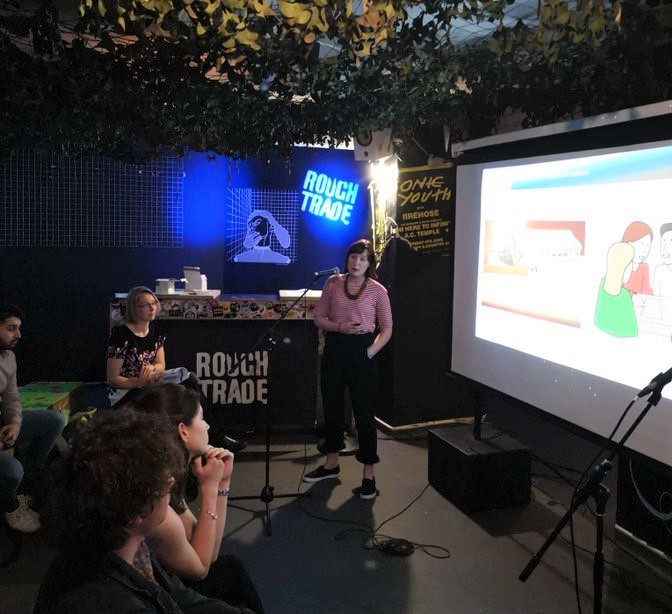Public Engagement @ Pint of Science: Should we label medicines as tested on animals?
Public Engagement @ Pint of Science: Should we label medicines as tested on animals?
On the 21st May, Pru Hobson-West and I dipped our toes into public engagement around animal research at the Nottingham Pint of Science Festival 2019. We gave the third and final session of the night at Rough Trade, a music venue and record shop in the city centre, following previous talks on the refinement of a mouse model of stroke and the science of nutrition. Our talk raised the purposefully provocative question ‘Should we label medicines as tested on animals?’ In planning this event, we were struck by the proliferation of labels in food products, which often give information about how animals were treated. Some have suggested that everyday medicines could also be labelled, in order to provide information about the animals used in their production.
We therefore decided to use this idea as a prompt or thought experiment to invite the audience to think through what such a label might look like. We invited our audience to consider this by using tried-and-tested creative tools, namely the trusty pen and paper. In asking people to produce their vision of such a label, we hoped to offer an opportunity to engage with the societal dimensions of animal research without pressuring individuals to state their ‘position’ on the issue.

After allowing some time for sketching, we opened the discussion up to the room. With the informality of the venue and the candidness of both previous speakers working to create an easy atmosphere, we gladly didn’t encounter the moments of awkward silence we’d feared beforehand. Instead, the audience were generous in sharing their thoughts and the labels they had produced. In thinking about the prospect of labelling medicines as tested on animals, members of the audience discussed a variety of interesting issues, including the ‘risks’ of openness with the general public and the potential impact on medication uptake, the benefits of highlighting the prevalence of animal research, and the difficulty of capturing the varying levels of animal use and severity in labels.
All in all, the night not only provided a space for ‘public’ discussion around animal research and for us to briefly share the work of AnNex, but also offered an interesting insight into some of the ways that publics are constructed in public engagement initiatives. Pint of Science is an international festival with a particular vision for science engagement. We consider that it would be worthwhile to try out our label initiative with other groups, for example by targeting a specifically ‘non-scientific’ audience or working with interest-groups mobilised around animal research. For us, engaging with publics on animal research means paying attention to those already engaged with the issue and also creating spaces for wider publics to think through the role animals play in this arena, in ways which are meaningful to them. In doing so, dialogues around animal research can hopefully move beyond the polarisation of public opinion in this area, and begin to better reflect on the contexts that shape the nuance of bioethical thought on this issue.